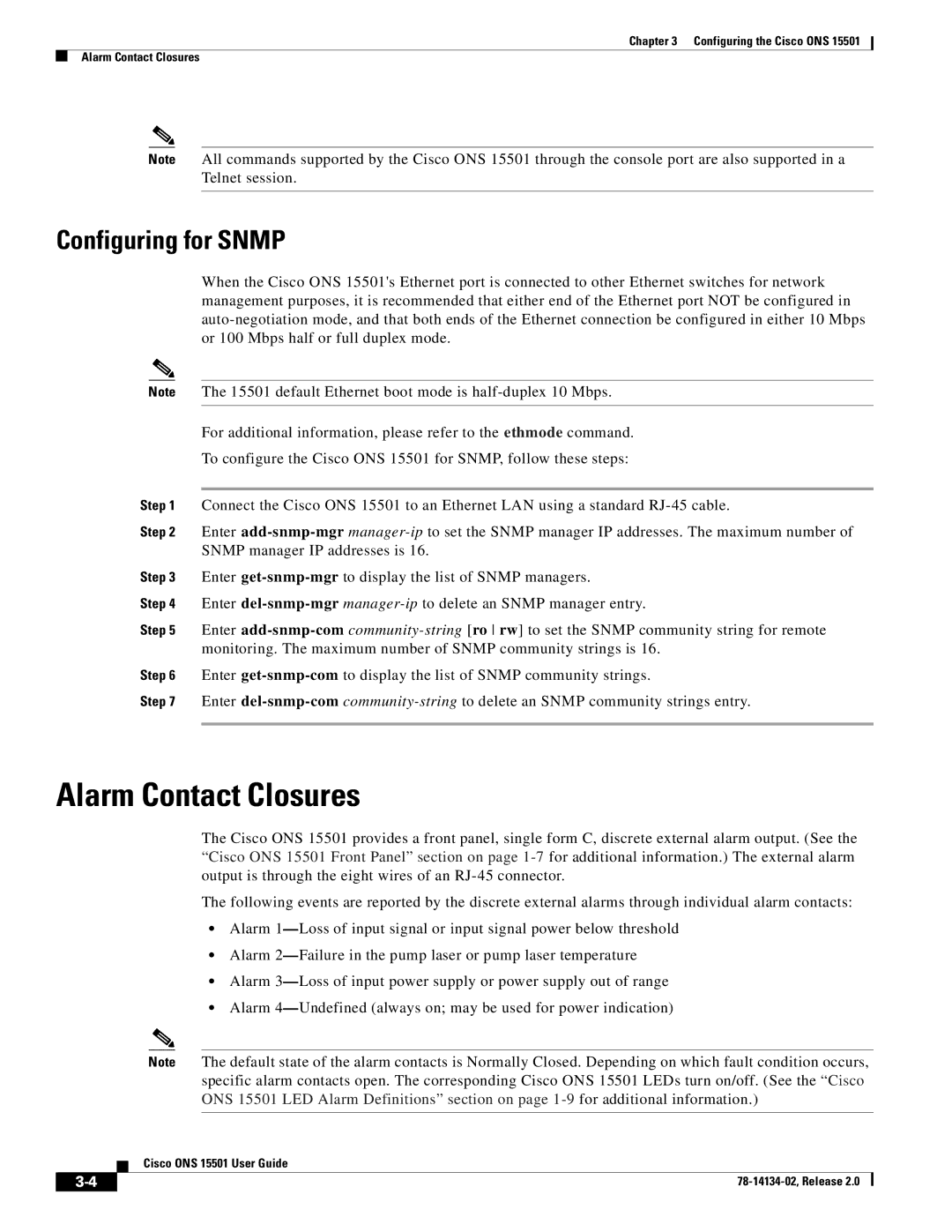
Chapter 3 Configuring the Cisco ONS 15501
Alarm Contact Closures
Note All commands supported by the Cisco ONS 15501 through the console port are also supported in a Telnet session.
Configuring for SNMP
When the Cisco ONS 15501's Ethernet port is connected to other Ethernet switches for network management purposes, it is recommended that either end of the Ethernet port NOT be configured in
Note The 15501 default Ethernet boot mode is
For additional information, please refer to the ethmode command.
To configure the Cisco ONS 15501 for SNMP, follow these steps:
Step 1 Connect the Cisco ONS 15501 to an Ethernet LAN using a standard
Step 2 Enter
Step 3 Enter
Step 4 Enter
Step 5 Enter
Step 6 Enter
Step 7 Enter
Alarm Contact Closures
The Cisco ONS 15501 provides a front panel, single form C, discrete external alarm output. (See the “Cisco ONS 15501 Front Panel” section on page
The following events are reported by the discrete external alarms through individual alarm contacts:
•Alarm
•Alarm
•Alarm
•Alarm
Note The default state of the alarm contacts is Normally Closed. Depending on which fault condition occurs, specific alarm contacts open. The corresponding Cisco ONS 15501 LEDs turn on/off. (See the “Cisco ONS 15501 LED Alarm Definitions” section on page
| Cisco ONS 15501 User Guide |
|
